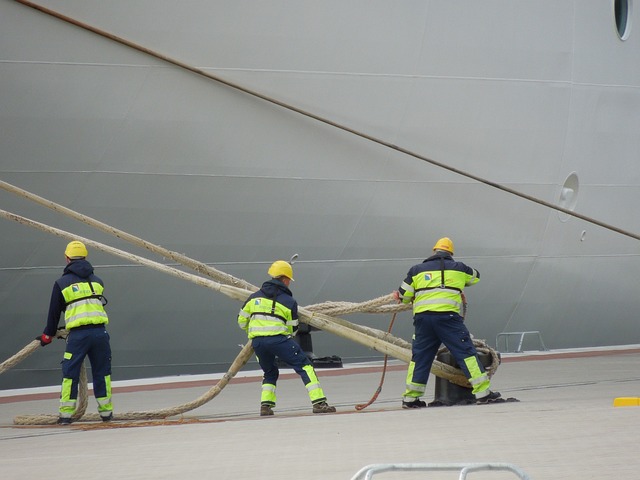
-
President Ferdinand Marcos Jr. has welcomed the European Commission’s extension of its recognition of Philippine compliance with the International Standards of Training, Certification and Watchkeeping (STCW) for seafarers
-
The President vowed to do everything to address the issues faced by the country’s maritime industry, particularly its seafaring sector, that had kept the seafarers’ job future aboard European vessels before the EC declared the Philippines STCW-compliant on March 31
-
Malacañang said the government is prepared with plans and programs to efficiently address the six deficiencies identified by the EC in its latest audit of the country’s maritime and seafaring sector
President Ferdinand Marcos Jr. has welcomed the European Commission’s (EC) extended recognition of the Philippines’ compliance with the International Standards of Training, Certification and Watchkeeping (STCW) and vowed to “do all” to address issues faced by the maritime industry, particularly the seafaring sector.
“Gagawin natin ang lahat upang mabigyan natin ng solusyon ang mga isyung kinakaharap ng ating maritime industry upang patuloy tayong mag-develop ng mga world-class at magagaling na seafarers para sa buong mundo,” Marcos said in a statement.
(“We’ll do everything to provide solutions to issues that the maritime industry is facing so that we’ll continue to develop world-class and skillful seafarers for the whole world.”)
The EC on March 31 announced that it had extended recognition of the country’s compliance with the STCW, effectively recognizing the Philippine maritime training and certification system.
This means European Union-based shipping lines may continue to hire Filipino seafarers.
RELATED READ: EC extends recognition of PH seafarers’ certificate
In a separate statement, Malacañang said the government is prepared with its plans and programs that will efficiently address the six deficiencies identified by the EC during the audit last November by the European Maritime Safety Agency (EMSA) of the compliance by the maritime industry and seafaring sector’s compliance with the STCW.
Earlier, the EC Directorate-General for Mobility and Transport said with the help of EMSA, it had identified six areas of deficiencies of the Philippine government in the maritime education, training and certification for seafarers.
These were in areas of monitoring, supervision and evaluation of training and assessment; examination and assessment of competence; program and course design and approval; availability and use of training facilities and simulators; on-board training; and issue, revalidation and registration of certificates and endorsements.
In December 2021, following a detailed assessment of the training and certification system in place, the EC informed the Philippines that its recognition of the seafarers’ certificates would be withdrawn unless serious measures were taken, including compliance with the STCW.
The EC said following this, the “Philippines has made serious efforts to comply with the requirements, in particular, in key areas like the monitoring, supervision and evaluation of training and assessment.”
“The outcome of the analysis allows the EU to extend the recognition of the Republic of the Philippines STCW system,” it said.
The EC said that while the Philippines continues to enjoy such recognition, some issues still need to be addressed.
Department of Transportation (DOTr) spokesperson Jonathan Gesmundo, in a briefing on April 1, said that although the EC has yet to set a deadline for meeting the EU standards, the Philippines’ Maritime Industry Authority (MARINA) would be closely coordinating to address these deficiencies.
DOTr and MARINA earlier welcomed the EC’s decision, noting that 49,000 Filipino marine officers and their families stand to gain from the EC decision.
The Philippines is the world’s leading supplier of seafarers.
Transportation Secretary Jaime Bautista also welcomed the EC’s offer of technical assistance to further improve the implementation and oversight of minimum education, training and certification requirements as well as the living and working conditions of Filipino seafarers.
In the coming months, the EC intends to provide the Philippines with technical assistance to further improve its education, training and certification system for seafarers, as President Ursula von der Leyen and Marcos also discussed on the margins of the EU-ASEAN summit last December.
The EMSA, on behalf of the EC, carried out a total of 13 inspections of the maritime education, training and certification system of the Philippines from 2006 to 2020.
As provided for by the STCW Convention, the EC may conduct an evaluation of the STCW compliance of non-EU member countries before recognizing the certificates of their seafarers and allowing them to work on board EU-flagged vessels.




